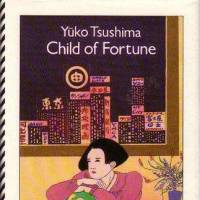Yuko Tsushima's "Child of Fortune," winner of the 1978 Women's Literature Prize in Japan, is a classic novel as relevant today as when it was published nearly 40 years ago. Called an "archaeologist of the female psyche," Tsushima wrote a stream-of-consciousness narrative that follows the mental revelations of Koko, an almost-40 Japanese woman struggling to reconcile her deepest wants with her everyday reality.
A part-time piano teacher and single mother whose young daughter prefers to live with her staid, successful aunt, Koko carefully sieves her dreams and memories when faced with an unplanned pregnancy by a casual acquaintance. By thus delving into her past, Koko can finally grasp her future. She has quietly rejected society's expectations her entire life, seemingly without conscious deliberation. Yet within the time frame of the novel, she triumphantly gains a new awareness of her own expectations for herself and her life with her daughter.
A novel at once powerfully uplifting and achingly sad, Geraldine Harcourt's elegant translation captures Tsushima's poignant wisdom on the female struggle with societal expectations. Painfully authentic in its depiction of Japanese womanhood and motherhood with all its strict, unspoken boundaries, "Child of Fortune" subtly celebrates the women who do not conform, like the author herself. It speaks beautifully to a feminist perspective, making it a must-read for all genders.
Read archived reviews of Japanese classics at jtimes.jp/essential.


















With your current subscription plan you can comment on stories. However, before writing your first comment, please create a display name in the Profile section of your subscriber account page.